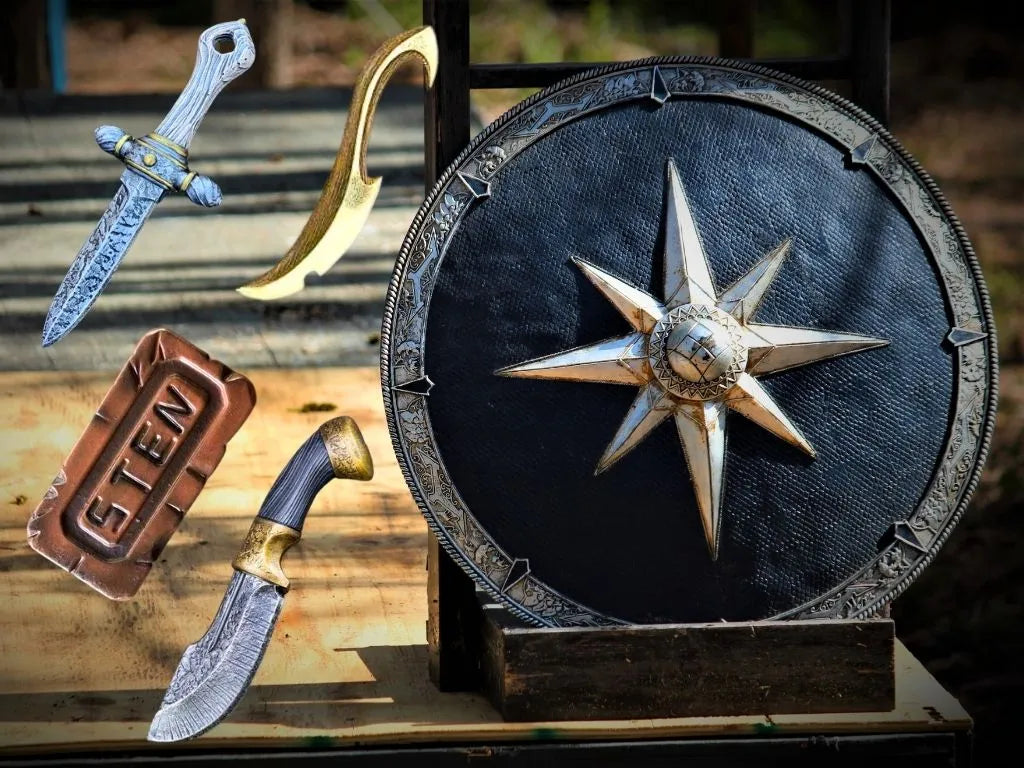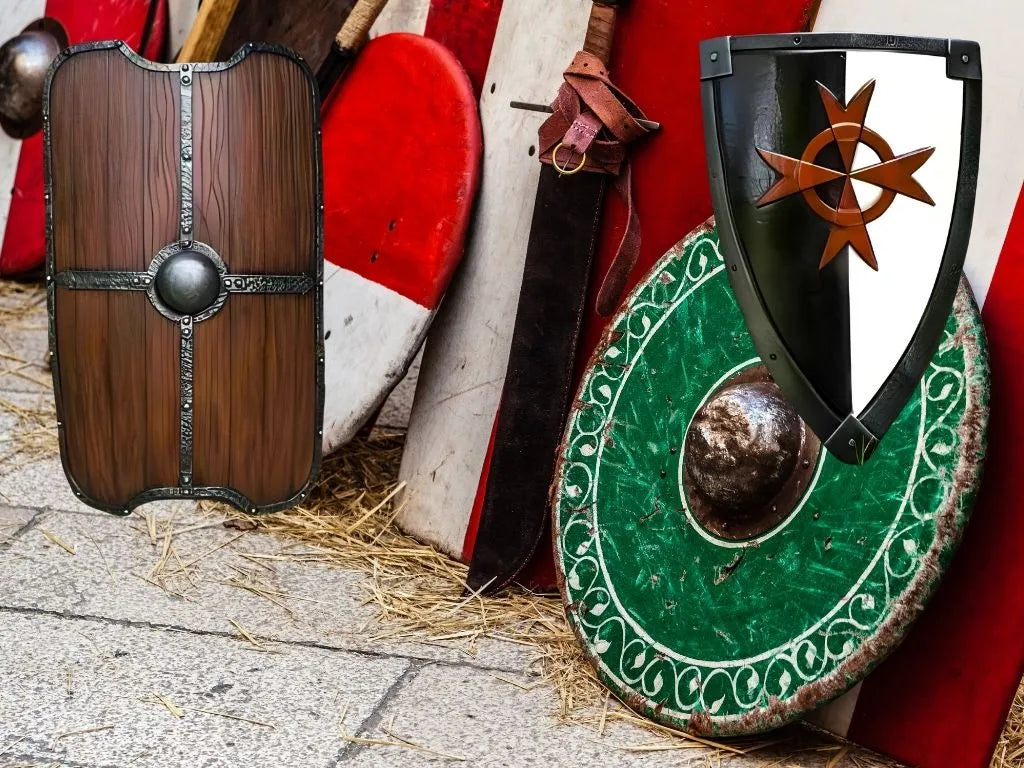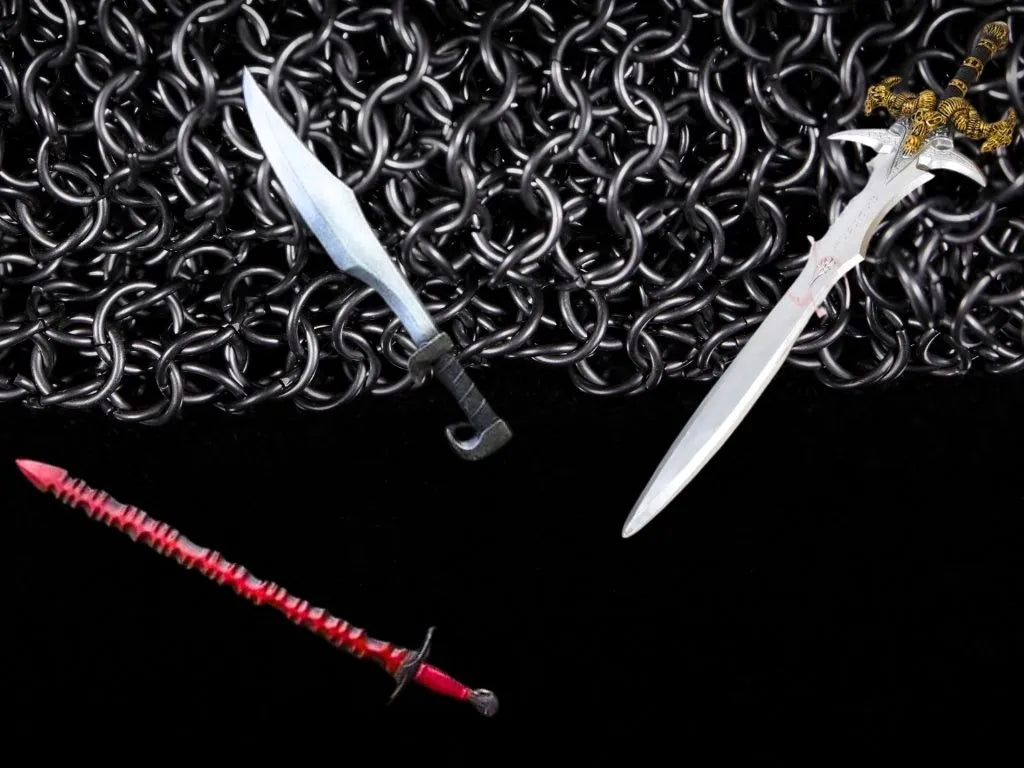Welcome to a new article from Swords and More. Today we will talk about Excalibur, the legendary sword of King Arthur, and the legend that accompanies this story.
Excalibur. The legend behind the sword
Excalibur, the sword that made Arthur Pendragon King of England when it was dug out from the rock in which it was embedded. As in many other legends, Excalibur is said to be wielded only by its true owner. Thus, when Arthur is dying due to wounds inflicted by his son Mordred at the Battle of Camlann, Excalibur must be returned to the Lady of the Lake, its original owner, as no one else can use it.
Check out this version of the Excalibur Sword!

In the 13th century, monks at the French abbey of Cluny spread a legend about a knight named Galgano, who was later canonized by Pope Urban III. This knight may be related to Sir Gawain or Galvan. The story includes iconic elements of the Arthurian cycle, such as the sword stuck in the stone, which first appeared in the 12th-13th century French poet Robert de Boron's play "Merlin." In the Italian region of Tuscany, there is the Rotonda di Montesiepi, where tradition holds that the sword stuck in a stone there is that of Saint Galgano.
Check out this version of the Excalibur Sword

In the famous work Le Morte d'Arthur by the 15th century English writer Thomas Malory, it is mentioned that the sword may have been pulled from a rock or an anvil. Malory also presents another version, recorded in the Post-Vulgate Cycle or Roman du Graal of the 13th century, in which Excalibur comes into Arthur's hands thanks to Nimue, the Lady of the Lake.
The origin of the name Excalibur has several theories. One of the most accepted is that it comes from the Latin "Ex Calce Liberatus", which would translate as "Freed from the stone". However, some believe that the name could derive from the Welsh tale "Culhwch and Olwen", part of the "Mabinogion", a collection of prose stories from medieval Welsh manuscripts. In that tale, Arthur's sword is called Caledvwich, derived from the Latin "chalybs" (steel or iron) and meaning "strong cleavage". Some scholars suggest that Caledvwich could have its origin in the Irish mythological sword Caladbolg, meaning "ravenous" and which was wielded by King Fergus mac Roich in the Ulster Cycle , a collection of prose and verse writings of Irish mythology.
This King Arthur's Dagger is incredible

Another story from the Arthurian cycle mentions a sword embedded in a stone or a tree trunk, depending on the version. This story features Galahad, the bastard son of Lancelot and Elaine de Corbenic, conceived under a spell that made Lancelot believe he was Queen Guinevere, Arthur's wife. Galahad is brought to court and, unwittingly, sits at the Round Table in the place reserved for the knight who must find the Holy Grail, a dangerous mission that has cost many lives. It was the 13th-century French poet Robert de Boron who related the myth of Arthur to the search for the Holy Grail, the chalice from which Christ drank at the Last Supper, giving it a more Christian dimension.
Excalibur was also noted for its magical powers. This tradition of magical weapons comes from the early Middle Ages, where there is mention of Dyrnwyn, the sword of Rhydderch Hael, a ruler of the British kingdom of Alt Clut, which burned if wielded by someone unworthy. Arthur possessed several weapons with special names and powers, such as the spear Rhongomyniad, which glowed until the end of the world; the dagger Carnwennan, which rendered its wielder invisible; and two swords: Clarent, mentioned in the English poem "The Death of Arthur," and Seure, which Arthur gave to Lancelot.
Check out this King Arthur Helmet

Excalibur's magical powers were manifested in Arthur's first battle, blinding his enemies with a glow like that of "thirty torches," as Malory describes in her work. Excalibur's scabbard also had magical properties, as it could heal. In Malory's account, the scabbard is stolen by Arthur's half-sister Morgana and thrown into a lake to avenge the death of her beloved Accolon of Gaul. This act was crucial, as without the healing scabbard, Arthur died at the Battle of Camlann. His body was taken to the island of Avalon, where Excalibur had been forged, and then returned to its original owner, the Lady of the Lake.
And you, what do you think of King Arthur and his legendary sword Excalibur?







